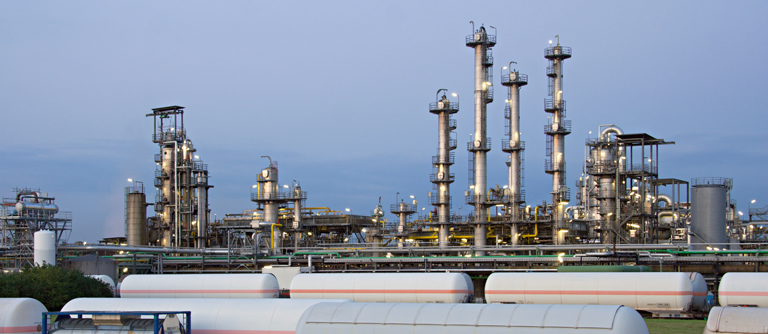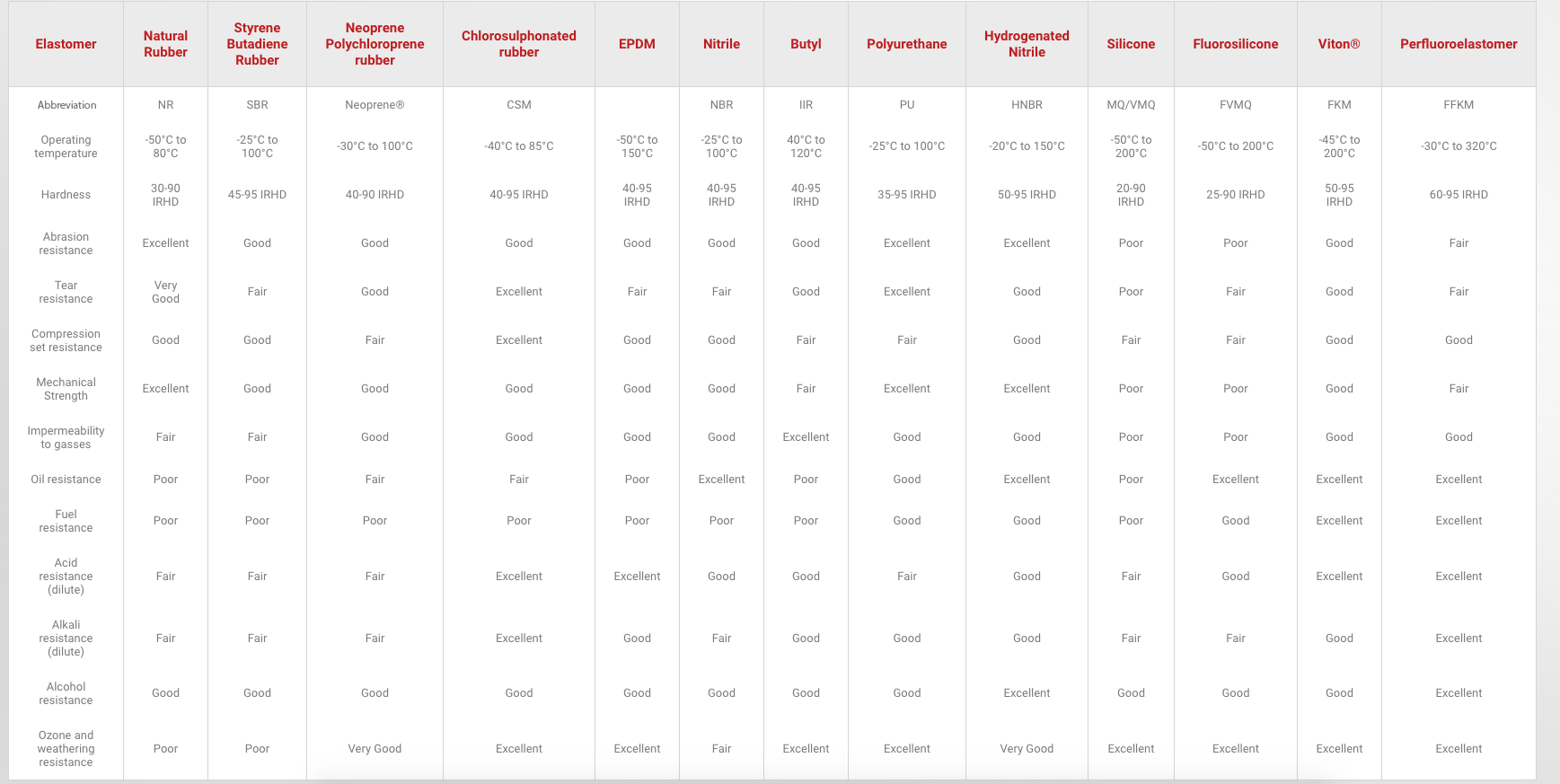Find the most appropriate ‘O’ ring size for your application.
EPDM Material Information
Selecting the correct material is the key to developing a reliable, durable and efficient sealing product. Choosing the wrong material for any given application could have a detrimental effect on productivity, endangering personnel and equipment in the process. TRP Polymer Solutions works with a wide range of high-performance polymer materials. Our experts can guide you towards the perfect seal material for your specific application.
Among the high-performance polymers that we work with here at TRP Polymer Solutions is EPDM. This high-density synthetic rubber is a dependable material for seals destined for low temperature environments and applications exposed to UV, sunlight, steam and some acids. Like any material, EPDM has its advantages and disadvantages, as we will explain in detail in our summary of this rubber’s properties below.
What is EPDM?
Ethylene-propylene diene monomer (EPDM) is a durable and versatile M-class synthetic rubber. EPDM is a copolymer of ethylene, propylene and a small amount of non-conjugated diene monomers that provide cross-linking sites for vulcanisation. EPDM’s ‘M’ classification refers to its saturated chain of the polymethylene type.
Advantages of EPDM rubber
There are numerous advantages of EPDM rubber. Capable of a reasonably wide operational temperature range of -50 °C to +150 °C, EPDM is suitable for sub-zero environments and cold materials. It offers outstanding weathering properties, including excellent ozone and sunlight resistance.
EPDM also delivers excellent tear, abrasion and steam resistance, as well as good resistance to compression set, dilute acids, ketones and alkalis. EPDM is widely used as a lower-cost polymer thanks to its all-round capabilities and good processing abilities.
Disadvantages of EPDM rubber
The disadvantages of EPDM rubber include relatively poor resistance to petroleum-based fuels, most oils and non-polar solvents. Given these characteristics, EPDM is not a suitable material for petro-chemical applications. It should be noted that the inert nature of EPDM also makes it difficult to adhere to.
EPDM seal applications
EPDM is used across a wide range of industrial applications, including:
• EPDM ‘O’ rings
• Steam lines
• Freezer room seals
• Automotive cooling systems
• Window and glove box seals
• Solar panel heat collectors
Frequently asked questions about EPDM
What are EPDM ‘O’ rings used for?
EPDM ‘O’ rings are often the best option for valves used in water systems and are an obvious choice in lower temperature applications. For a low-cost sealing material that has all the attributes required to perform in outdoor applications, EPDM is an excellent choice. This durable synthetic rubber won’t degrade under UV and sunlight exposure and can tolerate prolonged contact with steam and some acids.
What is EPDM’s chemical resistance?
EPDM performs admirably in steam applications and offers a high tolerance to detergents, sodium hydroxide solutions and many other diluted acids, ketones and alkalis. EPDM is highly unsuitable for use with many petroleum-based fuels, oils, lubricants and non-polar solvents. We certainly wouldn’t recommend EPDM for sealing applications in the petro-chemical industry.
Which is better: EPDM or NBR?
The choice between EPDM or nitrile rubber (NBR) is actually quite straightforward. For a durable seal material that performs well in ozone, sunlight, steam and a reasonably wide temperature range, EPDM is the clear choice. However, where UV and ozone are not a factor but fuels are, nitrile offers a far more reliable and cost-effective option than EPDM. Our polymer experts can provide further advice and guidance regarding your material options.
Where to buy EPDM rubber seals?
TRP Polymer Solutions can supply high-performance EPDM ‘O’ rings and seals that are designed to withstand the demands of your specific application. For advice and guidance about our various ‘O’ ring materials, or to discuss your application requirements in more detail, call TRP Polymer Solutions today on +44(0)1432 268899 or email sales@trp.co.uk.





